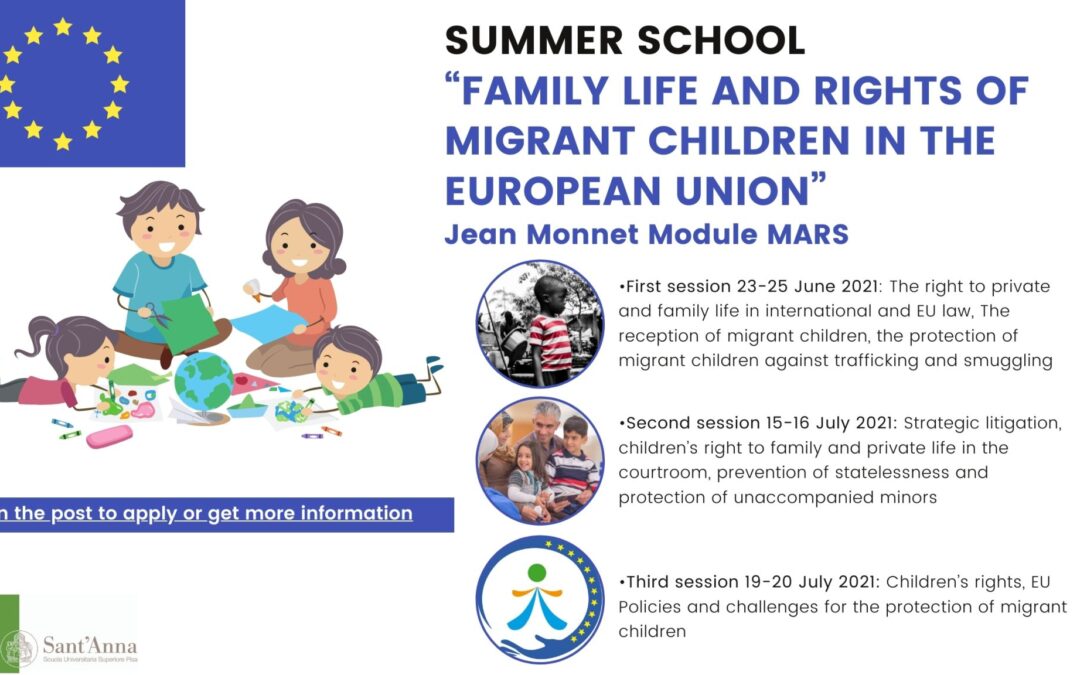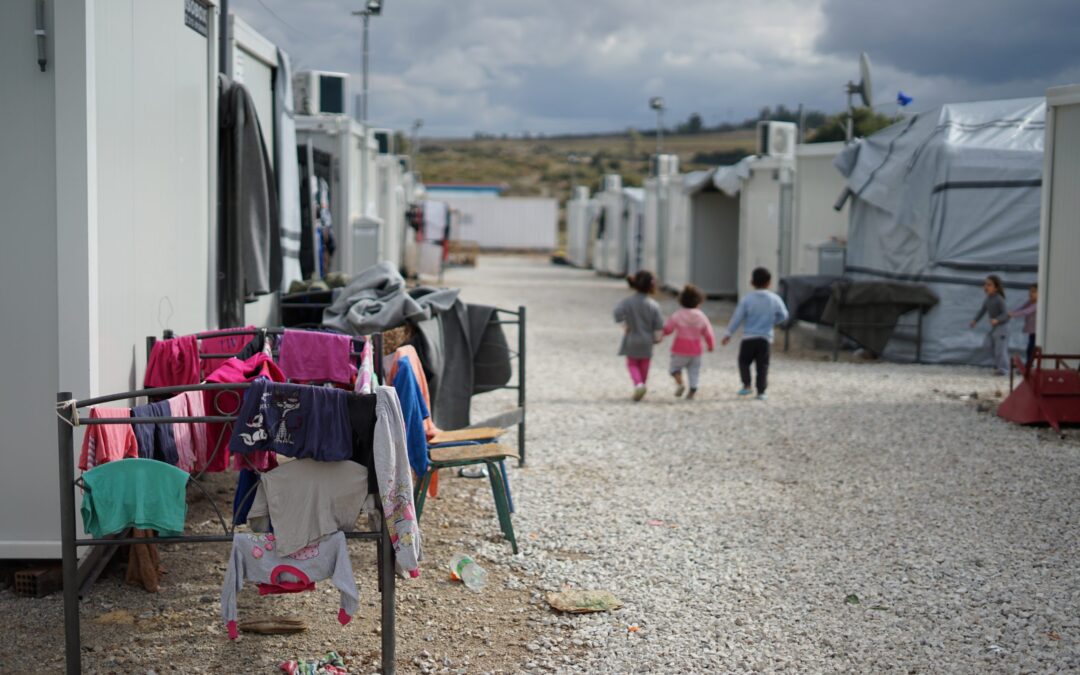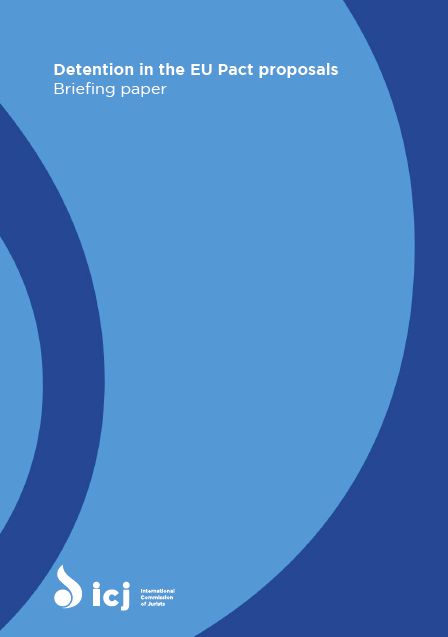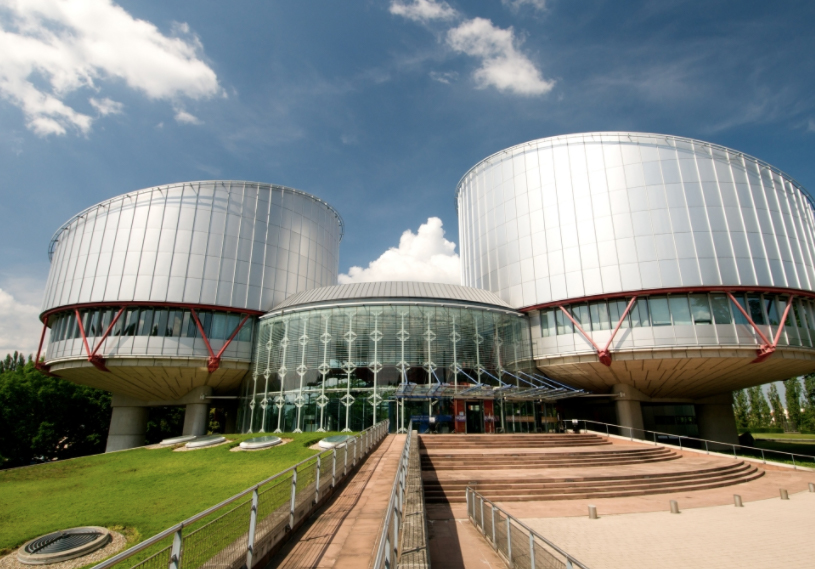
Jun 4, 2021 | Agendas, Events, News
Scuola Superiore Sant’Anna, in collaboration with the International Commission of Jurists (ICJ), is organizing an online Summer School on the “Family life and rights of migrant children in the European Union” on 23-25 June, 15-16 and 19-20 July 2021.
It will provide training on the right to private and family life of migrant children within the international and regional framework of human rights and EU law, and current challenges in protecting the rights of migrant children, including in the context of Covid-19. The lectures of the Summer School will also touch upon the EU’s Pact on Migration and Asylum of 2020 and the EU Strategy on the Rights of the Child 2021-2024.
The Summer school will be held in English and is open to professionals, academics, and students who would like to deepen their knowledge of the topic. Participants will be provided with relevant teaching materials which were developed in the FAIR project coordinated by the ICJ on fostering migrant children’s access to rights.
Enrolment must be made by application submitted online by 15 June 2021 and is limited to 40 participants. An early bird discount applies to candidates who register before 6 June 2021, while an exemption from enrolment fees applies to 5 foreign students who are beneficiaries of international protection (refugees and subsidiary protection holders).
See more details and the full agenda here: MARS summer school_brochure

Jun 2, 2021 | Agendas, Events, News
On Thursday 3 June 2pm CET, the International Commission of Jurists (ICJ) together with Saskia Bricmont, Greens/EFA MEP, will hold an online event on immigration detention of children in the EU, the current situation and implementation of the legal framework in EU countries. The event will consider ways forward and alternatives to detention, including in light of the new proposals of the EU Pact on Migration and Asylum and EU strategy on the rights of the child.
The event is organised on the occasion of the launch of the CADRE project (“Children’s Alternatives to Detention protecting their Rights in Europe”), seeking to promote the expansion, implementation and improvement of viable and effective alternatives to detention for migrant children in full respect of their rights in the EU, co-ordinated by the ICJ in partnership with seven national and international partners:
See the full agenda of the event here: CADRE_public launch event agenda
To register please fill in the form online here. Registration closes 3 pm CET 2 June.

Jun 1, 2021 | News, Publications
European legislators should reject the Screening Regulation proposal and revise the amended Asylum Procedures Regulation proposal that were proposed as part of the European Union Pact on Migration and Asylum. These proposals would result in the prolonged detention of migrants and refugees, said the International Commission of Jurists (ICJ) in a briefing paper released today.
“These proposals would result in impermissible detention of people not having committed any crime including those fleeing danger and seeking safety in the European Union in violation of international law, and would be especially cruel for children, who should not be detained at all,” said Karolína Babická, Legal Adviser at the ICJ.
The briefing paper published today comments on two proposals of the EU Pact, focusing on the impact of the new proposals on immigration detention and deprivation of liberty, providing recommendations to co-legislators in relation to the proposed EU Screening Regulation and the border procedures that would be established by the amended Asylum Procedures Regulation proposal.
If the proposals are adopted as proposed by the European Commission, prolonged immigration detention will inevitably result in practice, due to a lack of safeguards in the legislation. And there is a high risk of systematic detention at the border in breach of international human rights and refugee law.
In order to comply with international law obligations, detention during the screening and border procedures must only be used as a measure of last resort, applicable only in well-defined situations and based on a case-by-case assessment of the situation, while privileging alternatives to detention. Furthermore, children, as well as people in need of special procedural guarantees or with special reception needs, must not be detained.
The new EU Pact on Migration and Asylum developed by the European Commission was communicated by the Commission to other EU institutions on 23 September 2020. The Pact proposes a set of new legislation and amends existing proposals. The proposed Regulations will be directly applicable in EU Member states when adopted.
See the full briefing paper here: Detention in the EU Pact proposals-briefing-2021-ENG

May 26, 2021 | News
The ICJ welcomes the ruling by the European Court of Human Rights in the case of B.B.W. and others v. the United Kingdom, setting out important guarantees against mass surveillance online.
On 25 May, the Grand Chamber of the European Court of Human Rights issued its final ruling in this case in which the ICJ intervened. The case deals with the human rights implications of the system of intelligence mass surveillance of the United Kingdom, which was unveiled by the revelations of Edward Snowden.
“The judgment sets out clear guarantees to be respected in order to carry out bulk interception of communications”, said Massimo Frigo, Senior Legal Adviser for the ICJ Europe and Central Asia Programme, “it is a first important step towards ensuring that protection of human rights is as effective online as it is offline. All Member States of the Council of Europe must now ensure that their surveillance systems respect these minimal guarantees.”
In its judgment, the Court recognised the difference between surveillance of individual communications and bulk interception of communications with the use of metadata and introduces a set of procedural guarantees to be respected at initial, intermediary and final stages of bulk data surveillance.
The Court found that these guarantees also apply when a State receives intelligence based on bulk interception carried out by foreign States.
The judgment, however, does not fully address the implications for human rights of States’ participation in close transnational surveillance cooperation such as the system of the “Five Eyes” including the UK, USA, Canada, Australia and New Zealand.
“These transnational surveillance systems entail a higher level of responsibility by States under international human rights law in light of the high risk of bypassing national remedies”, said Massimo Frigo, “We hope the Court will be able to address these important issues in the future to strengthen the protection of human rights online in Europe.”
Contact:
Massimo Frigo, ICJ Senior Legal Adviser, t: +41797499949, e: massimo.frigo(a)icj.org

May 12, 2021 | Advocacy, News
The International Commission of Jurists (ICJ), the Turkey Litigation Support Project (TLSP) and Human Rights Watch (HRW) have intervened before the European Court of Human Rights in a case concerning the arrest and pre-trial detention of Turkish opposition politician Selahattin Demirtaş, on a series of charges relating to the exercise of his freedom of political expression. The applicant alleges that his pre-trial detention was arbitrary and unlawful.
In the intervention, the organisations underline that restrictions on freedom of expression, widespread detention and criminal prosecution under expansive anti-terrorism laws, and the impact on democratic debate and rights protection are now well documented in Turkey. This is particularly striking, and the repercussions serious, when opposition politicians are targeted for their expressions of opinion and engagement in democratic debate.
The interveners address:
- the nature and application of anti-terror criminal laws in Turkey and the implications for protection of the right to liberty (Article 5(1) of the European Convention on Human Rights (ECHR)) and freedom of expression (Article 10 ECHR) and for the limitation on use of restrictions on rights (Article 18 ECHR); and
- the effectiveness of the individual application procedure to the Turkish Constitutional Court as a remedy in detention cases, in particular in cases concerning the exercise of freedom of expression, in light of delays, the erosion of the independence and impartiality of the judiciary, and non-compliance of lower courts with the Constitutional Court’s decisions that protect Convention rights.
Full text of the intervention can be downloaded here.









